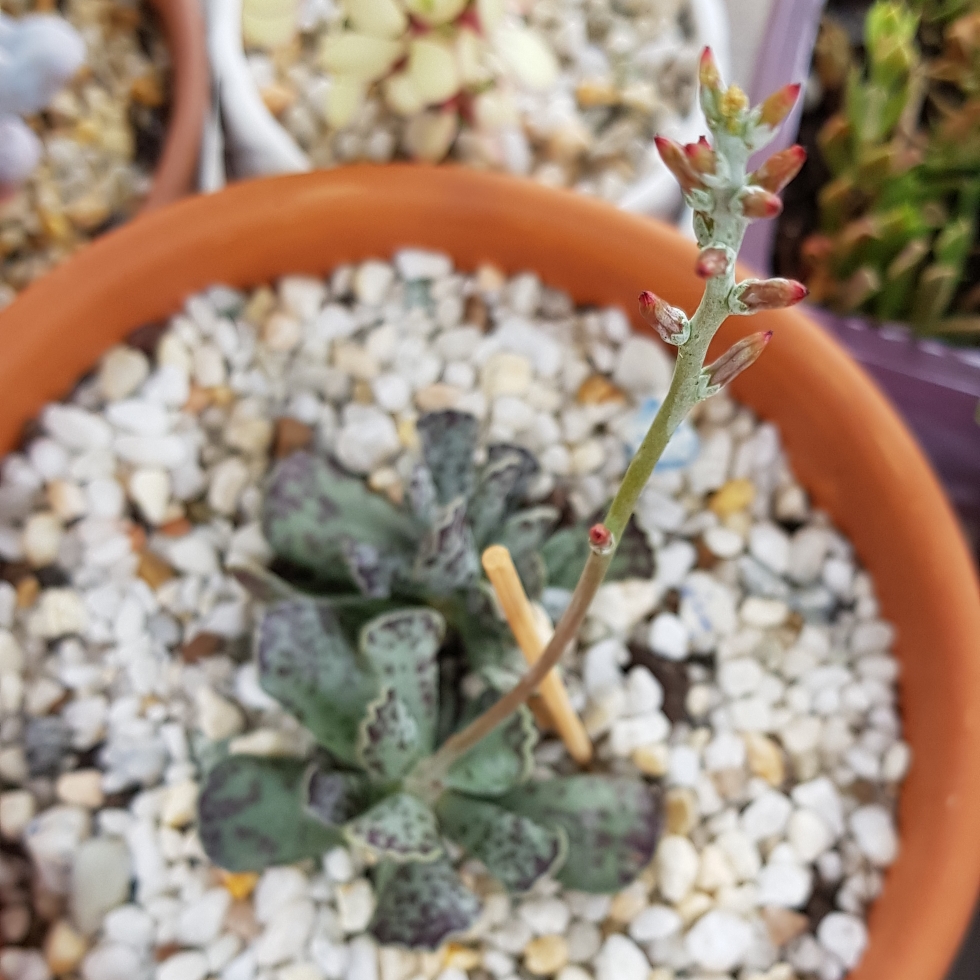
Adromischus cooperi
Adromischus 'Plover Eggs Plant'
Adromischus are small leaved succulent shrublets. Their oddly shaped and interestingly marked leaves are their main attraction. They produce small, upright flowers. Adromischus flowers usually have a greenish-white tube and pink or reddish corolla. Adromischus Cooperi will grow up to 7.5 cm tall with spreading branches. Adromischus Cooperi is spotted with purple, speckles on grey-green to blue, tubular-shaped 5cm leaves. It produces pink flowers atop of a 35cm tall inflorescence.
-
Full sun
-
Very little water
-
A little frost hardy: 32F (0°C)
-
Light and free draining
Common name
Adromischus 'Plover Eggs Plant'
Latin name
Adromischus cooperi
type
Succulent
family
Crassulaceae
ph
5.0 - 7.0 Acid - Neutral
Plant & bloom calendar
-
Best time to plant
-
When the plant will bloom
full grown dimensions
 0.10 M
0.08 M
0.10 M
0.08 M
Adromischus cooperi
Adromischus are small leaved succulent shrublets. Their oddly shaped and interestingly marked leaves are their main attraction. They produce small, upright flowers. Adromischus flowers usually have a greenish-white tube and pink or reddish corolla. Adromischus Cooperi will grow up to 7.5 cm tall with spreading branches. Adromischus Cooperi is spotted with purple, speckles on grey-green to blue, tubular-shaped 5cm leaves. It produces pink flowers atop of a 35cm tall inflorescence.
Planting
From Early Spring TO Early Spring
Adromischus require a free-draining gritty mix and plenty of sun. They are tolerant of cool, frost-free conditions during the winter if kept dry. Adromischus should be kept in a sunny position. Plant young plants in pots and keep indoors until they are well established. Plant outside only if they are offered frost protection through the winter months. Pot plants can be moved outside once all risk of frost has passed. They will not survive poor light or bad drainage in the wet.
Flowering
From Early Spring TO Late Summer
Adromischus flowers are generally small, with a greenish-white tube and pink or reddish corolla and produce sufficient nectar to start a fungal infection, especially towards the end of the growing season. As the flowers are not showy, many growers cut off the developing flower stems to avoid botrytis.



























